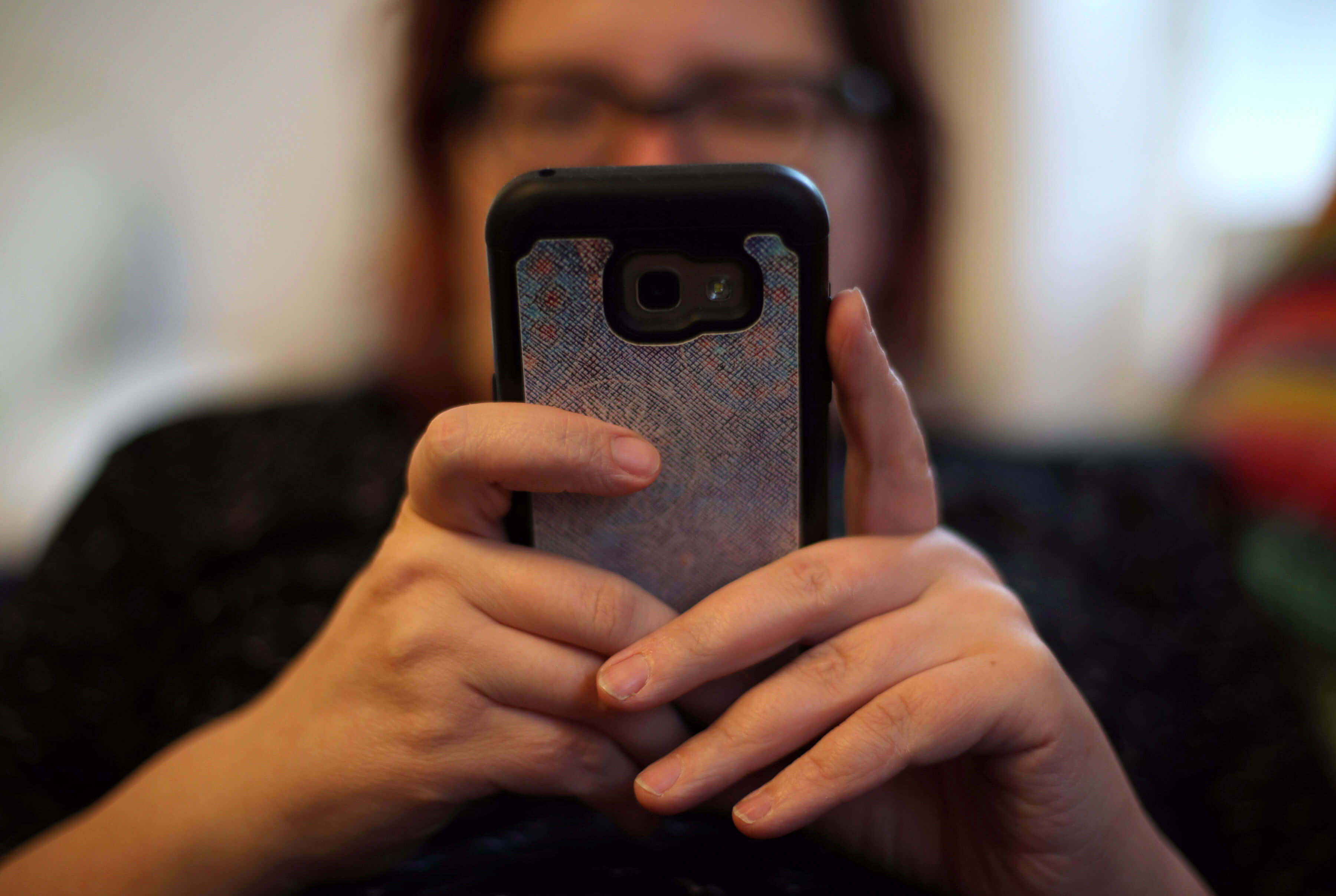Online searches for gambling addiction surge as legalized sports betting expands, study finds

Internet searches seeking help for gambling addiction have “increased substantially” as the number of states with legalized sports betting has expanded in recent years, prompting a need for more public health awareness, according to a study released Monday.
The findings “suggest that sportsbooks pose a substantial health concern,” researchers at the University of California, San Diego, and Bryn Mawr College wrote in the journal JAMA Internal Medicine.
“A paradigm shift in how regulatory frameworks and health organizations collaborate to address the complexities of gambling harms is needed,” the researchers wrote.
The study comes as legalized sports betting has exploded into a multibillion-dollar industry following a 2018 Supreme Court ruling that broke up Nevada’s monopoly on the practice and cleared the way for state-sponsored sports gambling.
Americans were set to wager an estimated $1.4 billion in this year’s Super Bowl, up from $1.25 billion in 2024, according to the American Gaming Association.
Currently, 38 states and Washington, D.C., allow for sports betting in some form, whether at a physical establishment or online. Some states are generating hundreds of millions of dollars in tax revenues each year.
While online searches for gambling addiction help had declined or stabilized in 2020 as the Covid pandemic halted sporting events, the searches increased year over year since 2021, when 32 states had sports betting, according to the study.
Researchers analyzed monthly Google searches surrounding gambling addiction, such as for “gambling addiction hotline” or “am I a gambling addict,” and found that there were cumulatively 23% more searches nationally than expected since the Supreme Court ruling.
In the 73 months following it, “there were approximately 6.5 to 7.3 million searches for gambling addiction help-seeking nationally, with 180,000 monthly searches at a peak during June 2023,” the study said.
Researchers also conducted independent evaluations in eight states — Illinois, Massachusetts, Michigan, New Jersey, New York, Ohio, Pennsylvania and Virginia — where there were “significantly more searches than expected.”
They concluded the higher search volumes in those states were “highly unlikely to be due to chance.”
“Each state’s cumulative increase in searches was higher than the aggregate national model and their peak month typically occurred during 2024, suggesting that searches are continuing to rise following the opening of sportsbooks,” according to the study.
A proliferation of sports betting companies in television and social media advertising and by major casino operators who are rebranding to emphasize the offering has normalized a once-taboo activity, study co-author Matthew Allen said.
The researchers concluded that the uptick in online searches signifies the need for public health officials to stay in front of the issue of gambling addiction, including through research and a comprehensive health care response.
“Prompt measures are essential to prevent the escalation of gambling-related harm and its long-term consequences,” the researchers said.
This month, Sen. Richard Blumenthal, D-Conn., and Rep. Andrea Salinas, D-Ore., reintroduced legislation that would provide the first-ever dedicated federal funding for nationwide gambling addiction treatment, prevention and research efforts.
The bill is supported by the National Council on Problem Gambling, a nonprofit organization that operates the national helpline, 1-800-GAMBLER. If passed, it would set aside 50% of the federal sports excise tax revenue for gambling addiction treatment and research.
“The growing legalization of sports betting coupled with the ability to place bets from your phone whenever you want have created the perfect storm for gambling addiction — resulting in a severe public health crisis,” Blumenthal said.
“With this legislation,” he added, “we work to stop addiction and save lives.”
The National Council on Problem Gambling said the sports betting industry needs to be part of any addiction education program.
Joe Maloney, a spokesman for the American Gaming Association, a national trade organization representing casino operators, said the legalization of sports betting has helped to protect consumers from predatory illegal operators and supports the inclusion of industry advertising standards that “mandate the inclusion of conspicuous messages around responsible gaming and problem gambling resources.”
Related
Sports Betting Giant Flutter Forecasts Strong U.S. Growth To Drive…
Flutter CEO Peter Jackson.Courtesy of Flutter Entertainment Flutter Entertainment, the world’s largest online gambling company, said that it’s expecting str
BetBlocker Enters US Responsible Gambling Market
The charity, originally from the UK, launched a US unit, BetBlocker US, as part of its North American entry. The organiz
Viewers react to ’embarrassing’ JD Vance comment toward Zelenskyy as…
Social media users watching clips of the heated meeting between President Donald Trump, Vice President JD Vance and President Volodymyr Zelenskyy have called a
Ukraine latest: Zelensky urges Trump to stand ‘more firmly on…
We have Zelensky's statement in full Below, we have Ukrainian president Volodymyr Zelensky’s statement in full after touching down in the UK following a fiery













